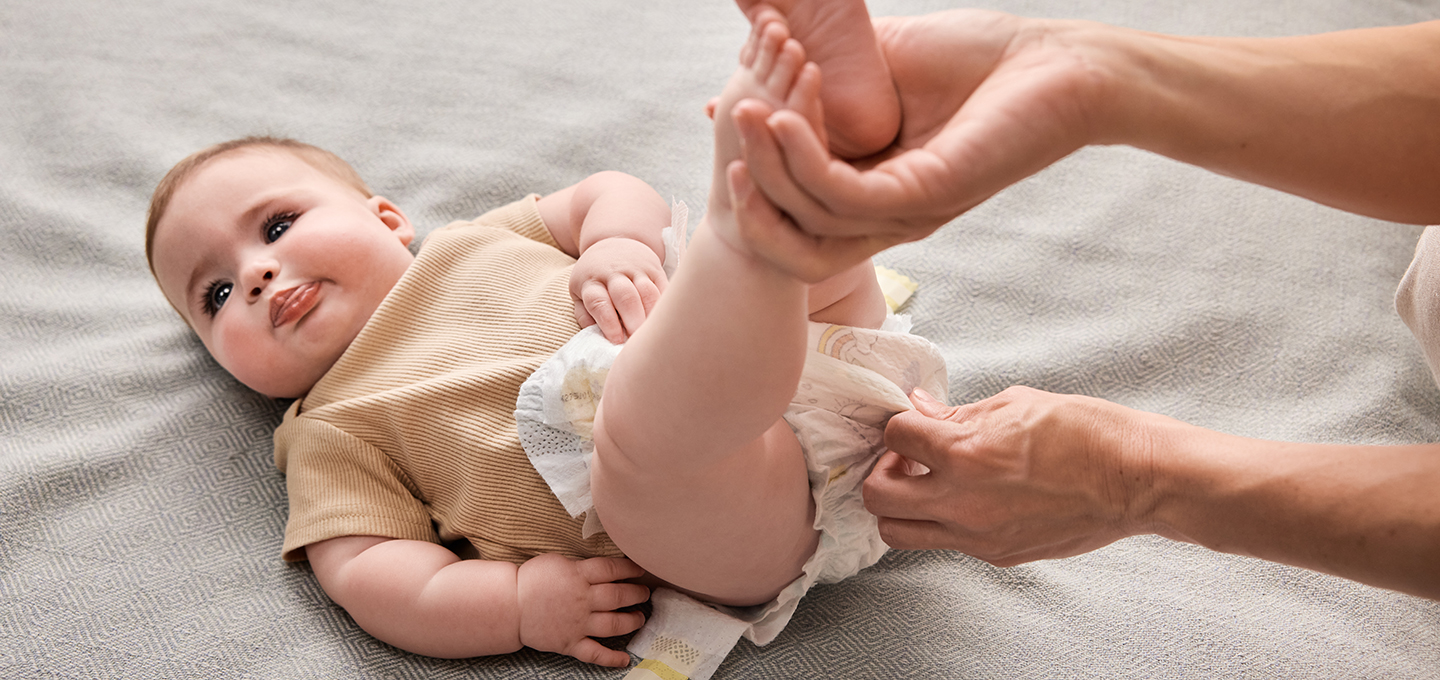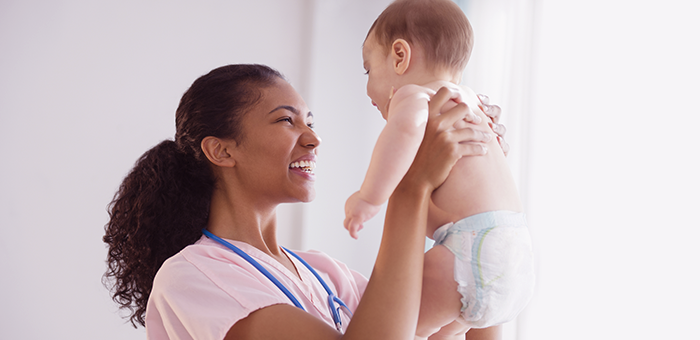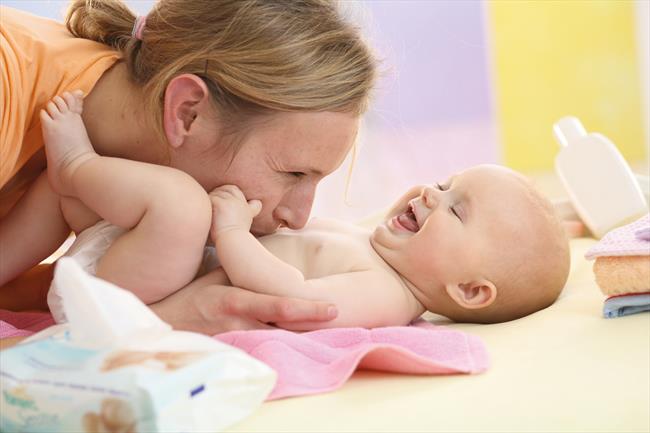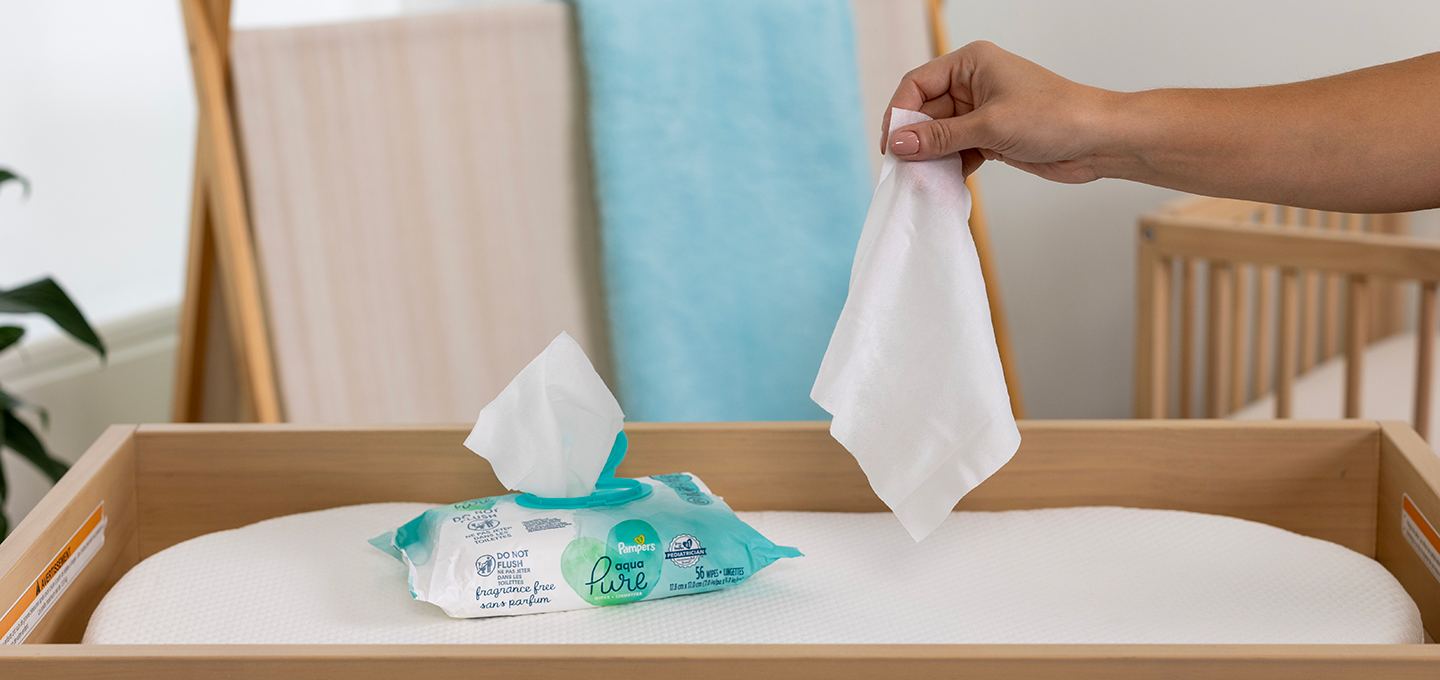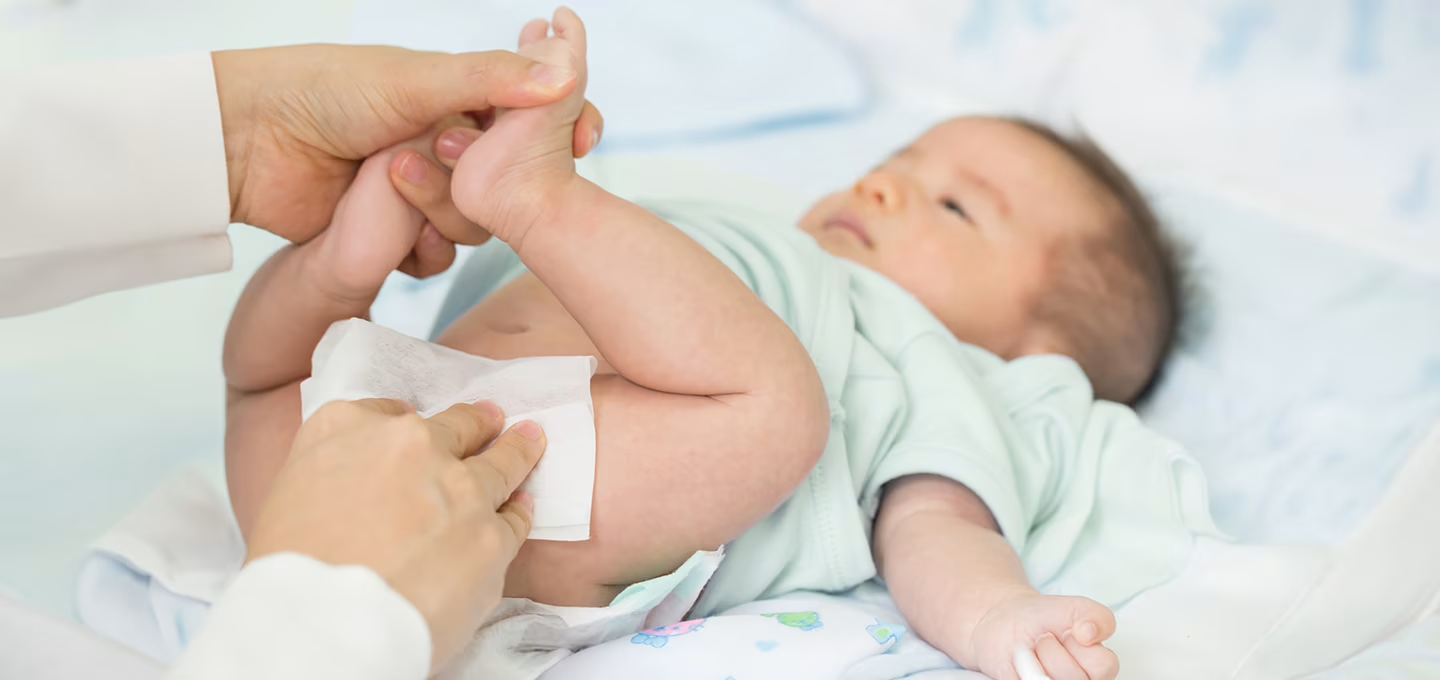
Best Baby Wipes for Diaper Rash Prevention
Choosing the best baby wipes for the job can make a big difference in soothing and protecting their sensitive skin. Based on expert recommendations and parent reviews, the top-performing wipes share a few key features: they are fragrance-free, alcohol-free, pH-balanced, and hypoallergenic. Dermatologically tested options with minimal ingredients are especially helpful for sensitive skin. Some of our recommended baby wipes include:
In the following sections, we’ll discuss the benefits of Pampers baby wipes and help you choose the best options to help prevent skin irritation based on your baby’s unique needs. Additionally, for parents looking to save on Pampers wipes and diapers, the Pampers Rewards App offers exclusive discounts and digital offers to help you stock up on your baby essentials.
What Wipes to Use for Diaper Rash?
When your baby has diaper rash, choosing the best wipe for the job can make a big difference in soothing and protecting their sensitive skin. Fragrance-free, alcohol-free, and pH-balanced wipes are typically the best options for maintaining healthy skin during diaper changes.
Pampers Wipes are made with soft, gentle fibers and mild cleansers that effectively clean without irritating delicate skin. They also include food-grade preservatives that protect against harmful bacteria, yeast, and mold for over two years, without harsh chemicals.
Whether you’re looking for water-based wipes or natural ingredients, Pampers has a wipe for every need. Here are three of the top options to consider:
Pampers Free & Gentle
Simple, gentle care for everyday messes. Pampers Ultraclean Wipes are hypoallergenic and made without fragrance, alcohol, parabens, or latex. They’re crafted for comfort with a soft cloth-like texture that’s gentle on delicate skin while effectively cleaning during diaper changes.
*vs. Huggies Natural Care
Pampers Sensitive
A top pick for delicate skin. Pampers Sensitive Wipes are clinically proven to be mild and are dermatologically tested. They help restore skin’s natural pH with every wipe and are especially helpful for babies prone to rashes or irritation.
Pair these with Swaddlers Diapers for a gentle, sensitive routine.
Pampers Aqua Pure
Pampers Aqua Pure Wipes offer the best of both worlds—99% pure water combined with a gentle touch of dermatologically tested cleansers to help clean effectively while being kind to delicate skin. These wipes are also free from alcohol, parabens, and dyes, offering a simple yet thorough clean that parents can feel confident about.
The purest Pampers wipe. Made with 99% pure water and a touch of gentle, dermatologically tested cleanser, Aqua Pure Wipes offer a simple clean with minimal ingredients. They're ideal for newborns or parents looking for an ultra-clean option.
Pair with Pure Diapers for a naturally gentle combo.
Baby Wipes for Diaper Rash Prevention
Diaper rash is a common skin irritation that can develop in the diaper area. While it’s often recognized by redness, it may appear differently depending on your baby’s skin tone. It can present as spotty or bumpy areas (papules), lighter or darker patches, dry or itchy skin, or even pus-filled bumps (pustules). These variations make it important to focus on maintaining healthy skin rather than relying solely on visual signs.
One of the best ways to help protect your baby’s skin is to keep it clean and dry. Baby wipes are a key part of this routine—they gently remove messes and help minimize the buildup of potential irritants like urine and stool.
While plain water can seem like a gentle option, it may not always be enough, especially after a messy diaper change. Think of it this way: just as water alone doesn’t always leave your hands clean, your baby’s skin may need more thorough cleansing to stay comfortable and healthy.
Using pH-balanced baby wipes can help protect your baby’s delicate skin by maintaining its natural balance and reducing exposure to irritants. However, while gentle wipes can help prevent diaper rash, they don’t treat it. If your baby’s skin becomes irritated and the rash persists, or you suspect a skin condition such as eczema, it’s best to consult your healthcare provider.
Worried that baby wipes might be causing diaper rash? That often comes down to the ingredients and how the wipes are used. Wipes with harsh additives—like alcohol—can dry out or irritate the skin. Opting for alcohol-free, dermatologically tested wipes made for sensitive skin can go a long way in keeping your baby’s bottom happy and healthy.
Using Baby Wipes Effectively to Prevent Diaper Rash
A good diapering routine is key to keeping your baby's skin clean and comfortable. If you’re considering the best wipes for diaper rash, using baby wipes designed for sensitive skin can make a difference in maintaining skin health. Pairing a wipe with the right diaper has also been shown to be effective. Here’s how to use baby wipes effectively during diaper changes.
Does the Wipe and Diaper I Chose Make a Difference?
You might be wondering if all diapering products are the same. The answer is a definite “no.” The results of two clinical studies (published in the Journal of Pediatric Dermatology in 2020 and 2021) demonstrated that pairing Pampers Swaddlers diapers and Pampers Sensitive Wipes resulted in less stool irritants left on the baby’s skin, better skin pH and a 50% reduction in severe skin redness in the diapered area. So, there are no “butts” about it—some products are better together—like Pampers Swaddlers diapers and Pampers Sensitive wipes!
How Many Wipes Does a Baby Use?
A frequent question new parents might ask is: "How many wipes does a baby use per day?" The answer depends on how often your little one needs a diaper change and the type and amount of mess. Pampers wipes provide gentle yet effective cleaning, so parents can use as many as needed to keep their little one’s skin clean and fresh. Because stool can hide in the diapered area, caregivers should make sure all visible stool and urine are removed from the skin to keep it healthy, all day and all night long.
Newborns require frequent diaper changes (up to 10-12 per day), meaning parents will go through a lot of wipes in those early months. Keeping plenty on hand ensures you're always prepared for diaper changes, whether at home or on the go.
How to Wipe a Baby Properly
Knowing how to wipe a baby correctly helps maintain skin hygiene and reduces irritation.
Keep reading for a step-by-step clean, and also check out our guide on how to change a diaper.
How to Use Baby Wipes for More Than Just Diaper Changes
While baby wipes are essential for diaper changes, they can also be used for quick clean-ups throughout the day:
By using the right baby wipes and following a gentle diapering routine, you can help reduce the risk of irritation and keep your little one’s skin fresh, soft, and healthy.
FAQS AT A GLANCE
Yes, some wipes can contribute to diaper rash, especially those with alcohol, fragrance, or harsh chemicals. Choose alcohol-free, fragrance-free, and dermatologically tested wipes, such as Pampers Sensitive or Aqua Pure, which are designed for sensitive skin and can help prevent irritation.
The Bottom Line
Keeping your baby’s skin clean and comfortable is key to maintaining healthy skin, and using the right baby wipes can make a big difference. Choosing pH-balanced, fragrance-free wipes, like Pampers Aqua Pure Wipes or Pampers Sensitive Wipes, helps support healthy skin while ensuring a gentle yet effective clean.
For parents looking to save on Pampers wipes and diapers, the Pampers Rewards App offers exclusive discounts and digital offers to help you stock up on your baby essentials. Download the app to start earning rewards with every Pampers purchase!
- American Academy of Pediatrics. Caring for Your Baby and Young Child: Birth to Age 5, 6th ed. (New York: Bantam Books, 2009.)
- Healthy Children. “Changing Diapers.”
- Kids Health. “Diapering.”
Read more about Baby
Join a World of Support
through Pregnancy and Parenthood.
